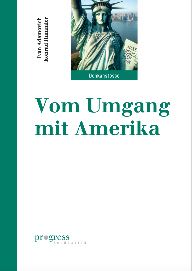From Trauma to Thesis: Hummler’s New Take on an Unraveling Superpower
Hardly any other Swiss private banker has had more traumatic encounters with the United States than the man from eastern Switzerland, Konrad Hummler. Yet that does not stop him from again engaging critically with the dominance of this superpower – and arriving at some surprising conclusions.
The trigger was an article in the Swiss daily «Neue Zürcher Zeitung» on 12 April 2025, written by Editor-in-Chief Eric Gujer, which motivated Konrad Hummler to «get to the bottom of this business with the new US president» himself.
«It might, so it seemed to me, not be sufficient to bat away a potentially historic turning point in US policy with a few rather smug, tossed-off pseudo-historical comparisons,» he told finews.com. «The danger is obvious that the matter would not be taken seriously enough.»
Lesson Learned First-Hand
«I experienced the determination of the Americans first-hand once in my life; that is where my motivation comes from to understand everything a bit better and perhaps even be able to forecast it,» Hummler continued.
As is well known, his bank Wegelin & Co. had to cease operations in 2012 in the course of the tax dispute between the US and Switzerland, as finews.com reported several times.
Ivan Adamovich Joins In
Ivan Adamovich, co-author and CEO of Private Client Bank (Image: BW)
As Hummler’s writings on the current situation grew ever more extensive, Ivan Adamovich joined him as co-author – himself a former Wegelin banker and now CEO of Private Client Bank in Zurich, whose board of directors Hummler chairs.
MAGA Crew
In the essay «Dealing with America», published by the Progress Foundation in Zurich, Hummler and Adamovich test the idea that there may be more rationality in the overall bewildering approach of the new US administration than is generally assumed in Europe.
On that basis, the two authors develop three scenarios for how the world might evolve. They do not assign probabilities because, in their view, «it would be premature.»
Concretely, Hummler and Adamovich suggest reading Donald Trump’s second term not as a series of erratic impulses but as an attempt to dismantle, in a planned fashion, the now untenable US preeminence. In their view, the «MAGA crew» recognises that America can no longer shoulder the global commons –security, world currency, development aid – either financially or industrially.
Diplomatic Affronts
Through targeted violations of taboos, tariffs, cancellations of agreements and diplomatic affronts, Trump deliberately destroys the trust of the «reluctantly benevolent» in order to return the hegemon to a more normal great-power status.
The initial diagnosis is this: three decades of asymmetric globalisation – cheap Chinese production plus dollar monopoly – have led in the US to de-industrialisation, immense public debt, and exorbitant security burdens.
Free trade without currency adjustment created a «listing» because Beijing kept the renminbi artificially cheap while Washington enjoyed the dollar’s seigniorage. The result is a Rust Belt, social tensions, and a federal budget whose interest payments already exceed military spending.
From «Sugar Daddy» to «Deal-maker»
Hegemony appears in the essay as a historically unstable order in which the leading state becomes the residual absorber of all problems. The system works as long as the led believe in the hegemon’s superiority and creditworthiness.
When that trust breaks, the order dissolves. The paper sees exactly this «weaning programme» in Trump’s approach: he mutates from «sugar daddy» to «deal-maker,» accepts short-term market disruptions, and aims at a new global balance more favourable to the US.
Three Pictures of the Future
To capture the extreme uncertainty of such a turning point, the authors use military scenario techniques. They sketch three futures—again, without giving odds:
- Partition of the world – the Trump administration’s desired scenario. Powerful tariffs, a weakened dollar, and radical state restructuring divide the globe into two rival gravitational centres, the US and China. Anyone who plays by American rules remains a trading partner; those who don’t become enemies. Domestic markets outweigh multilateral institutions.
- Multilateralism 2.0 – the optimistic variant. After a shock, all actors grasp the costs of confrontation. The US moderates its tariff policy, China abandons currency manipulation, and a new, more balanced globalisation begins – driven by reforms, innovation, and debt reduction in both great powers.
- The great disorder – worst case. Tariff spirals, financial crises, sovereign defaults, and power vacuums unleash a worldwide cascade of protectionism, inflation, and military conflicts. Central banks lose independence, asset values collapse, and violence rises.
Because no one can seriously quantify which picture will become reality, Adamovich and Hummler advocate a stance of radical preparedness. Small states like Switzerland should remain agile in economic and security policy, cultivate multiple partnerships in parallel, keep the government lean, and strengthen defence capability.
Individuals, in turn, would be well advised to invest in education, adaptability, and robust financial structures; blind scenario optimism could prove dangerous.
Consequences for Switzerland
 All in all, the highly readable text does not deliver a moral verdict on Trump but a prompt for reflection: What if «America First» actually follows a strategic playbook aimed at transforming the US from a costly global umpire into a self-confident power pole?
All in all, the highly readable text does not deliver a moral verdict on Trump but a prompt for reflection: What if «America First» actually follows a strategic playbook aimed at transforming the US from a costly global umpire into a self-confident power pole?
For Europe, and Switzerland in particular, this creates the duty to reassess their own assumptions and prepare for an era in which security, trade, and monetary order are no longer supplied as a matter of course.
- The essay can be ordered from Tuesday, 20 May 2025, via this link.



















